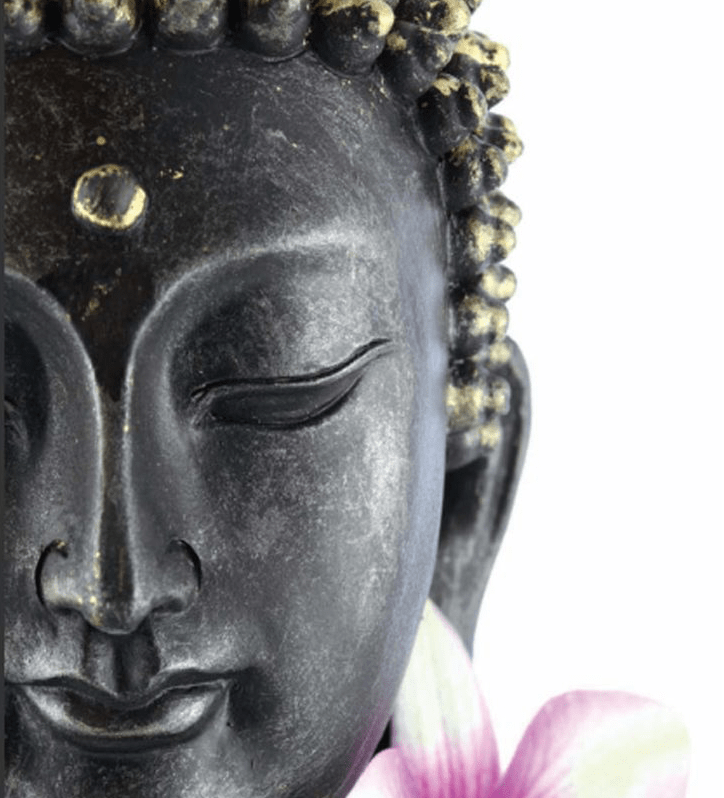Being Patient with Ourselves
Just as it is good to be patient with others, it is good to be patient with ourselves. We can all be haunted by our past mistakes, by the amount of time and energy we have wasted, but we must accept ourselves with all our strengths and weaknesses. There are many obstacles in life, and they cannot be overcome unless we have infinite patience with ourselves. When we are patient with others, we cannot help being patient with ourselves.
Athletes, I understand, often keep a daily record of their training. In the same spirit, I take a few minutes every evening to get a bird’s-eye view of my day to see where I can improve. This is not a negative survey. You are not finding fault with yourself. You are asking, “Where can I be a little more patient? Can I be a little more loving toward Amelia tomorrow? Can I be a little more helpful to John?” These are positive ways in which we can improve the quality of our daily living tomorrow in the light of what we have done today.
Because of our human conditioning we all have a competitive instinct, which we can harness to compete not against others, but with ourselves. The question is not, “Can I be better than Harry?” but “Can I be better tomorrow than I was yesterday?” Interestingly enough, this makes every day new. Tomorrow is never the same old day. There is always something more to be done: one or two steps to take on the path upward, some greater care to avoid the mistakes that all of us make in some small way. Instead of brooding over mistakes or feeling resigned to them, I would suggest taking every possible care not to repeat those mistakes tomorrow and making at least a little improvement in our daily behavior.
When you refrain from unkindness, you are uncovering your real nature. Unkindness is not really characteristic of anyone. Beneath the selfish conditioning that brings such sorrow to us and others is a core of goodness that is an essential part of the human personality. The behavior that covers this goodness is a mask, which we gradually remove in the course of spiritual growth. We don’t have to make ourselves loving; we have only to remove unkindness from our speech and finally from our hearts.
Kindness Is Strength
Strength is often equated with the capacity to attack, but to me it means the internal toughness to take whatever life deals out without losing your humanity. It is those who never stoop to retaliation, never demand an eye for an eye, who are truly strong. They have the toughness to be tender, even sweet, while resisting violence with all their heart. By contrast, those who are ready to strike back at the slightest provocation are not strong but fragile. They may espouse a higher view of human nature, but almost anything can break them and make them lash back at those they oppose.
When someone is being sarcastic or cruel to you, the natural response is to retaliate. If you want to be unshakeable, you have to train your mind in patience and endurance, the most grueling training that life offers. Life shows no mercy to those who lack this inner strength. Every virtue requires the toughness never to retreat in the face of challenge.
My grandmother had a very pungent phrase for difficult people: “A lash in the eye.” We all know from experience how an eyelash in the eye can be so irritating that we just cannot think about anything else. That is exactly how difficult people affect those around them. But for the mystics, this lash in the eye is an opportunity for learning the skills in life that matter most: patience, forgiveness, and freedom from likes and dislikes. When they think of someone who has been a thorn in their flesh, they will say to themselves, “Without you, how could I ever have learned to be patient? How could I ever have learned to forgive?”
It is a very poor evaluation of human beings to think that impatience and violent reactions are part of human nature. We have to look to people like Mahatma Gandhi, who was kind under any provocation, to see what human nature is really like. Gandhi’s life showed over and over that even a violent person will respond if exposed to someone who, by always being kind, focuses consistently on the highest in our nature.
Patience Adds to Health
Patience is not only a mental virtue; it is an asset even for physical health. I’m sure you are aware of the way your heart races when you get impatient. Perhaps you have noticed, too, that your breathing becomes faster and shallower. Doesn’t it seem reasonable that if you can strengthen your patience to such a degree that other people’s behavior never upsets you, your heart, lungs, and nervous system will be on vacation? Don’t take my word for it; try it. At first, I agree, you will feel some stress from going against an established habit. That is to be expected. After all, when you have been leading a sedentary life, walking only as far as the garage or the television set, it is stressful for a while to get out and jog; your heart and lungs complain. But how quickly they feel better for it! It is the same with patience; this is one of the grandest secrets of health.
Strength is often equated with the capacity to attack, but to me it means the internal toughness to take whatever life deals out without losing your humanity.
Research today suggests that emotional immunity to negative states of mind may well be linked to physical immunity, even resistance to disease. A person who is even-minded, who doesn’t get shaken if people speak ill of him or excited when they praise her to the skies – such a person, I submit, is a poor host for disease. That kind of inner toughness creates a protective buffer, an enhanced resistance to illness and the everyday stress of daily life.
The Fragrance of Goodness
When I was teaching English at a college in central India, I remember, men leaving campus at the end of the day used to stop by the flower stand for garlands of jasmine to take home to the wives, mothers, and daughters in the family. Half a rupee, at that time,would buy a couple of feet of delicate petals with a haunting perfume.
Walking into my classes in those days was like entering a fragrant garden; so many girls had twisted garlands of ivory jasmine in their shining black hair. Some would do their hair in a style you may have seen in the frescoes from the Ajanta caves, with a bun on top, pulled a little to one side, and a garland woven around. Others had a little chignon at the back. But most of them simply twisted strings of blossoms into their long, thick braids. And even after the flowers had faded and been tossed away, the girls’ hair would still be fragrant with the scent of jasmine. Certain boys used to sit at the back of class, sniff audibly, and heave sighs of appreciation.
Lovely flowers smell sweet, the Buddha says, but they fade, and their fragrance cannot last. The fragrance of goodness, however, abides. When you have been in the presence of someone who has love for all, you will take home with you a little of that person’s kindness and patience, a heart at peace, just as the smell of roses remains in a room long after the flowers are gone. Even you and I, when we can forgive unkind words or malicious behavior and not carry agitation in our hearts, will leave a fragrance that others, too, will carry away.
Lovely flowers smell sweet, the Buddha says, but they fade, and their fragrance cannot last. The fragrance of goodness, however, abides.
Reprinted with permission from Patience: A Little Book of Inner Strength, Nilgiri Press, 2010. Copyright 2010 by The Blue Mountain Center of Meditation, CA.







